选择热点
 荷兰莱顿大学
荷兰莱顿大学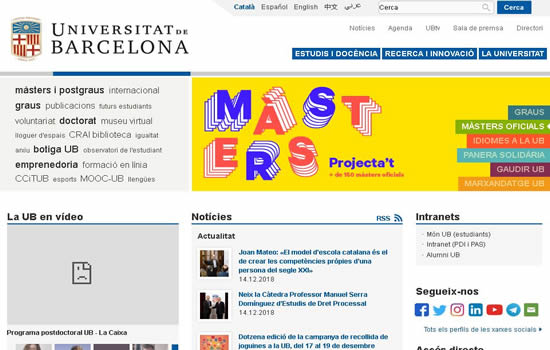 西班牙巴塞罗那大学
西班牙巴塞罗那大学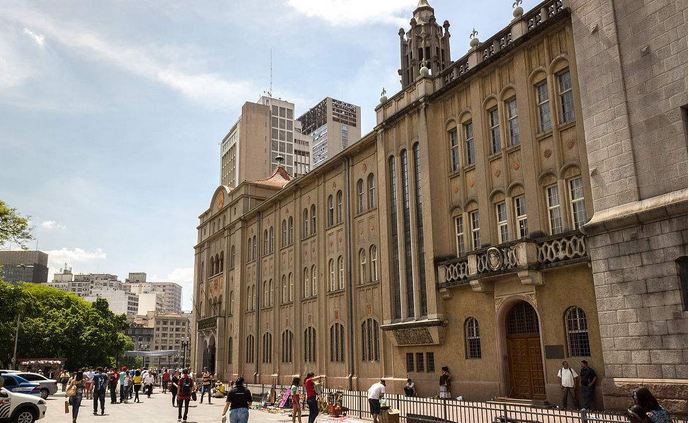 巴西圣保罗大学 University of Sao Paulo, Brazil
巴西圣保罗大学 University of Sao Paulo, Brazil 台湾南华大学 University of South China in Taiwan
台湾南华大学 University of South China in Taiwan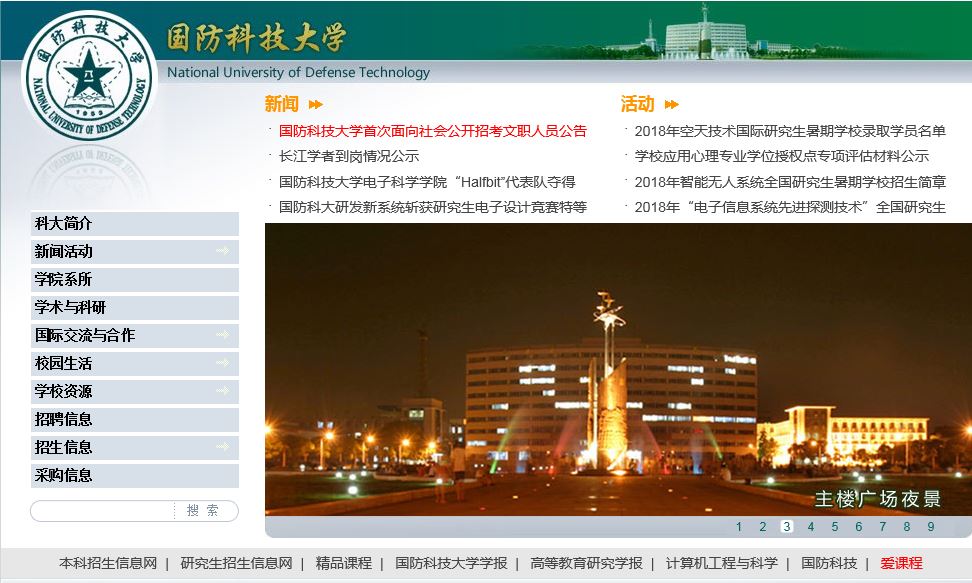 科技大学 National University of Defense Technology
科技大学 National University of Defense Technology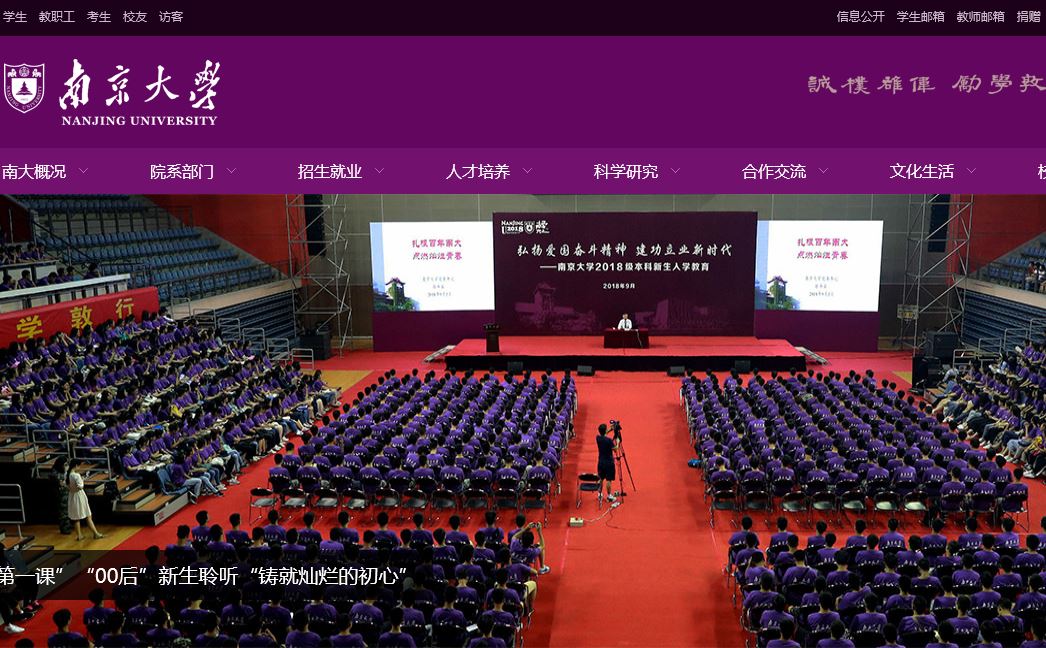 南京大学 Nanjing University
南京大学 Nanjing University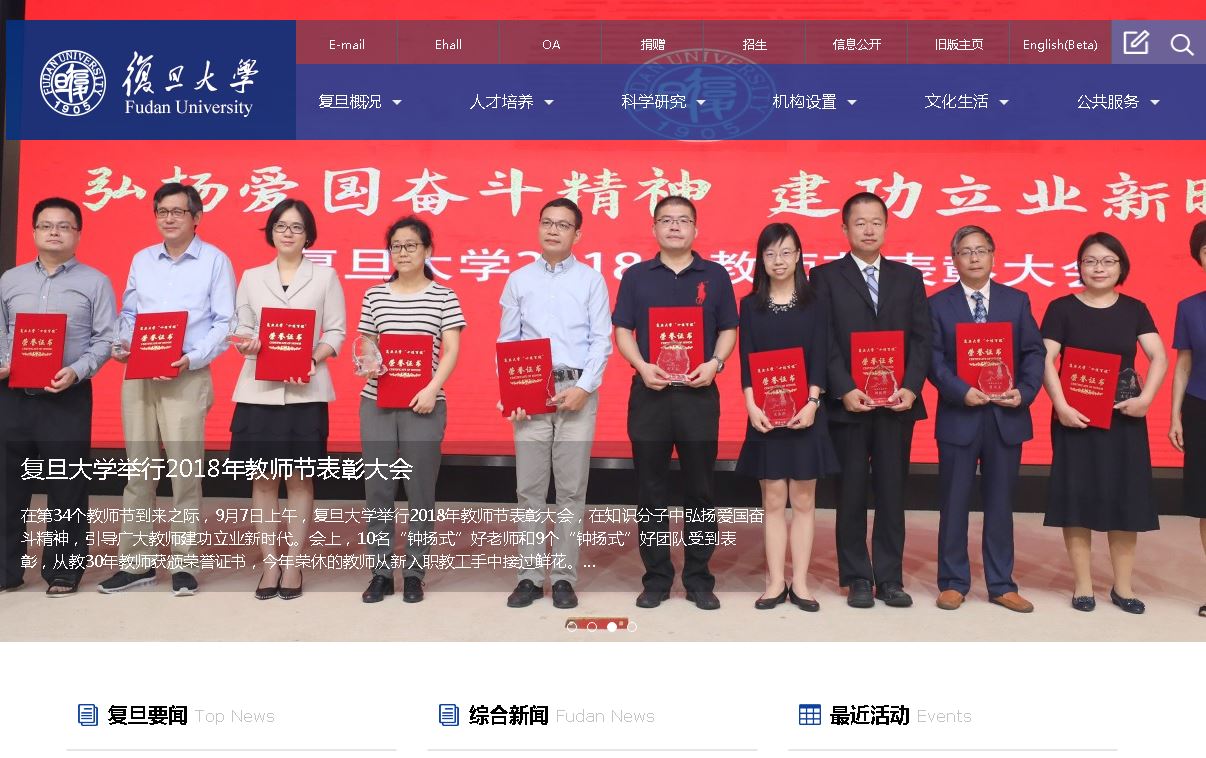 上海复旦大学 Fudan University
上海复旦大学 Fudan University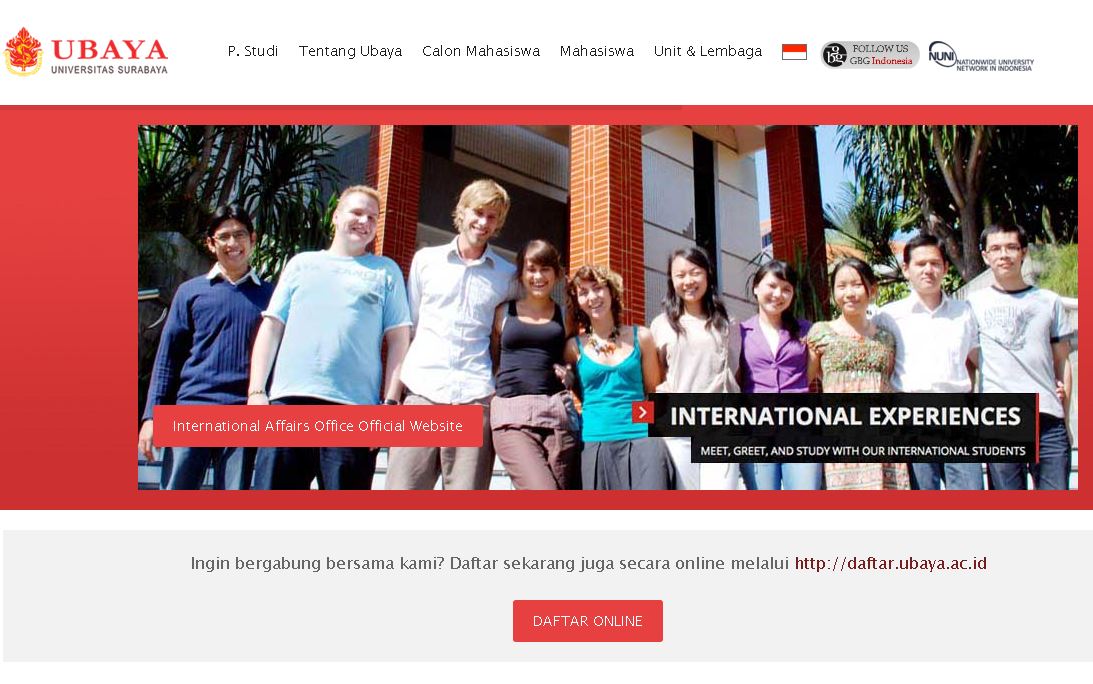 泗水大学(Ubaya)
泗水大学(Ubaya)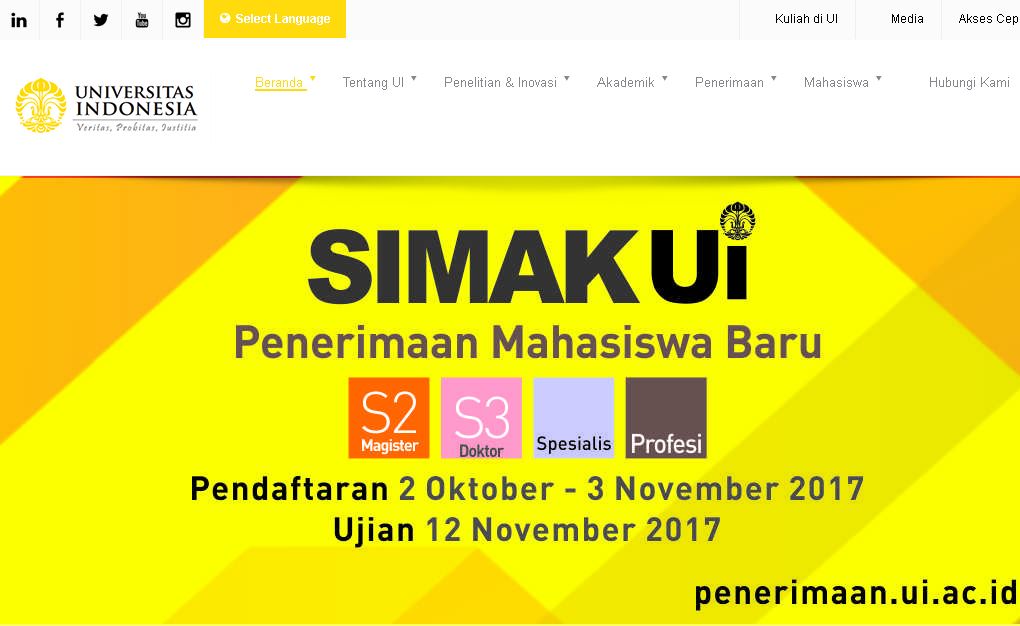 印尼大学 universitas indonesia
印尼大学 universitas indonesia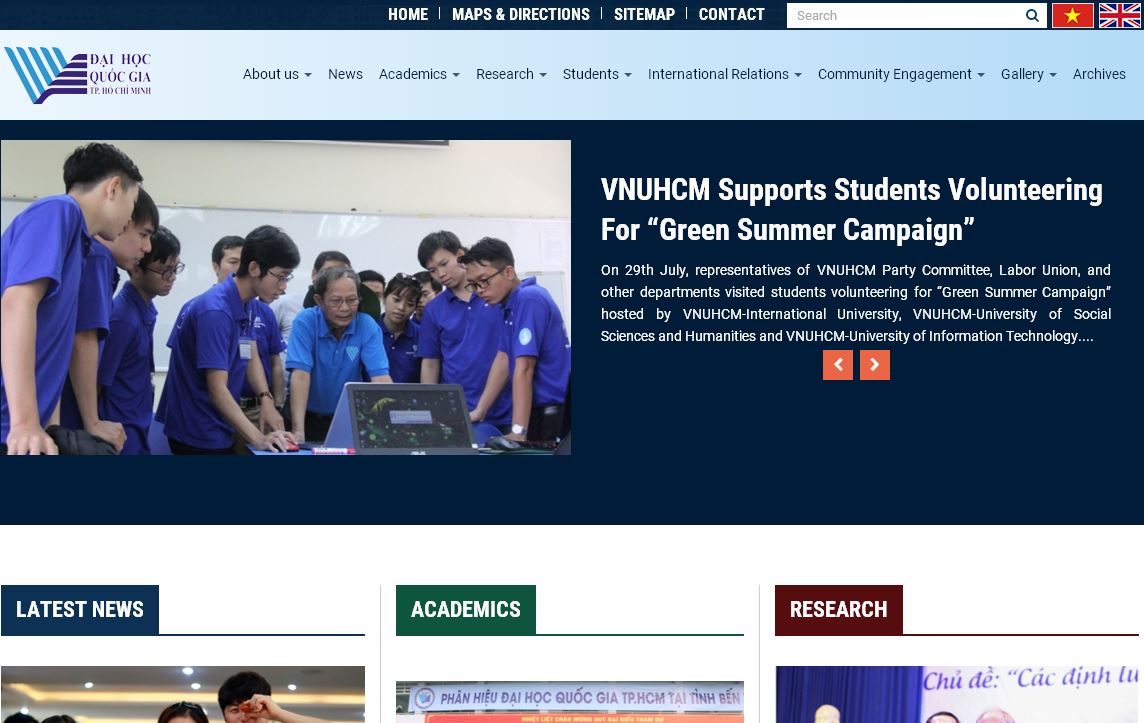 越南某大学 Vietnam National University
越南某大学 Vietnam National University 菲律宾大学 University Of The Philippines
菲律宾大学 University Of The Philippines
英语常见集合名词的用法
发布时间:2025-01-06
来源:大学网站
英语常见集合名词的用法1.
family(家庭),team(队),class(班),audience(听众)等其用法特点为:若视为整体,表示单数意义;若考虑其个体成员,表示复数意义。
比较:This class consists of 45 pupils.
这个班由45个学生组成。
This class are studying English now.
这个班的学生在学习英语。
2.
cattle(牛,牲畜),people(人),police(警察)等其用法特点为:只有单数形式, 但却表示复数意义,用作主语时谓语用复数;不与 a(n) 连用,但可与the连用(表示总括意义和特指)。
如:People will laugh at you.
人们会笑你的。
The police are looking for him.
警察在找他。
For these many cattle were killed.
就因为这个原因宰了不少牲畜。
注:表示牲畜的头数,用单位词 head(单复数同形)。
如:three head of cattle 3头牛,twenty (head of )cattle 20头牛。
3.
goods(货物), clothes(衣服)等其用法特点是:只有复数形式(当然也表示复数意义,用作主语时谓语也用复数),但通常不与数词连用。
如:Such clothes are very expensive.
那样的衣服很贵。
To whom do these goods belong?
这些书是谁的?
4.
baggage / luggage(行李), clothing(衣服), furniture(家具), machinery(机器), poetry(诗), scenery(风景), jewelry(珠宝),equipment(设备)等其用法特点为:是不可数名词,只用单数形式,不用不定冠词 (当然更不能用数词),没有复数形式。
如:Our clothing protects us from [against] the cold.
我们的衣服可以御寒。
Have you checked all your baggage?
你所有行李都托运了吗?
特别提醒:machinery, poetry, jewelry, scenery 相应的个体可数名词是 machine, poem, jewel, scene。
如:a poem / a piece of poetry 一首诗,many machines / much machinery / many pieces of machinery 许多机器。
5.
hair(头发,毛发)指全部头发或毛发时,为集合名词(不可数);指几根头发或毛发时,为个体名词(可数)。
如:My hair has grown very long.
我的头发已长得很长了。
(D21)The police found two hairs there.
警察在那儿找到了两根头发。
(D23)【英语常见集合名词的用法查看网站:[db:时间]】
family(家庭),team(队),class(班),audience(听众)等其用法特点为:若视为整体,表示单数意义;若考虑其个体成员,表示复数意义。
比较:This class consists of 45 pupils.
这个班由45个学生组成。
This class are studying English now.
这个班的学生在学习英语。
2.
cattle(牛,牲畜),people(人),police(警察)等其用法特点为:只有单数形式, 但却表示复数意义,用作主语时谓语用复数;不与 a(n) 连用,但可与the连用(表示总括意义和特指)。
如:People will laugh at you.
人们会笑你的。
The police are looking for him.
警察在找他。
For these many cattle were killed.
就因为这个原因宰了不少牲畜。
注:表示牲畜的头数,用单位词 head(单复数同形)。
如:three head of cattle 3头牛,twenty (head of )cattle 20头牛。
3.
goods(货物), clothes(衣服)等其用法特点是:只有复数形式(当然也表示复数意义,用作主语时谓语也用复数),但通常不与数词连用。
如:Such clothes are very expensive.
那样的衣服很贵。
To whom do these goods belong?
这些书是谁的?
4.
baggage / luggage(行李), clothing(衣服), furniture(家具), machinery(机器), poetry(诗), scenery(风景), jewelry(珠宝),equipment(设备)等其用法特点为:是不可数名词,只用单数形式,不用不定冠词 (当然更不能用数词),没有复数形式。
如:Our clothing protects us from [against] the cold.
我们的衣服可以御寒。
Have you checked all your baggage?
你所有行李都托运了吗?
特别提醒:machinery, poetry, jewelry, scenery 相应的个体可数名词是 machine, poem, jewel, scene。
如:a poem / a piece of poetry 一首诗,many machines / much machinery / many pieces of machinery 许多机器。
5.
hair(头发,毛发)指全部头发或毛发时,为集合名词(不可数);指几根头发或毛发时,为个体名词(可数)。
如:My hair has grown very long.
我的头发已长得很长了。
(D21)The police found two hairs there.
警察在那儿找到了两根头发。
(D23)【英语常见集合名词的用法查看网站:[db:时间]】
相关阅读
目录列表
资讯列表
英语资讯


共0条评论
网友评论温馨提示:您的评论需要经过审核才能显示,请文明发言!